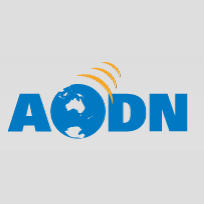Brief description
This record describes the collections of benthic biota (and their derived data) from two Marine National Facility charter voyages conducted under the Benthic Characterisation Project (3.1) of the Great Australian Bight Research Program (GABRP): SS2013_C02 and IN2015_C02. The GABRP aims to describe the key elements of the GAB marine ecosystem. This understanding of the structure and function of the ecosystem will be used to inform future integrated and sustainable ocean management and assessment/mitigation of potential future impacts. An overarching objective of the voyages was to contribute to developing models of ecosystem-level structure and function for the GAB. Benthic biota samples were taken on 5 transects in the central and eastern GAB at 6 depth strata (200m, 400m, 1000m, 1500m, 2000m and 3000m). Epibenthic biota were collected primarily using the beam trawl; macro- infauna were extracted by elutriation of sediment collections taken using the ICP and the Smith-MacIntyre grab. Most beam trawl samples were taken during the IN2015_C02 voyage while most macro-infauna were collected during the earlier SS2013_C02 voyage. The invertebrate specimens were identified to OTU and photographed on board and shipped to Museum Victoria, from where selected taxa were distributed to taxonomic experts for identification. Macro-infauna samples were sorted to OTU in the lab and specimens treated the same as epifauna for further identification. Specimens were distributed to various Museum collections (including SAMA, NMV, AMS) for registration and curation. All fishes were identified to OTU on board and shipped to the Australian National Fish Collection (ANFC) where they were registered and databased. A series of workshops were held bringing together fish expert taxonomists to identify the collection and distribute representative sub-collections to various museums. Taxa targeted for detailed taxonomic identification: sponges, anemones, octocorals, polychaetes, molluscs, echinoderms, crustacea (select groups), pycnogonids and fishes.Lineage
Maintenance and Update Frequency: asNeeded
Statement: Data source: field surveys Taxonomic upgrading: identification of target taxa to species-level by experts at various Australian museums, followed by integrating these identifications into the original catch data using accession numbers to track individual specimens. Assigning final CAAB codes to species-level identifications and updating file-names of photographed specimens to reflect the upgrading.
The data includes all upgrades entered and quality assured until June 2016. The bulk of the data will be updated and documented in a client report by December 2016
Future upgrades beyond Dec 2016 will be tracked and added to the data based on museum registration numbers.
Notes
CreditGreat Australian Bight Research Program (GABRP)
Credit
GABRP: BP, CSIRO, SARDI, the University of Adelaide and Flinders University
GABRP: BP, CSIRO, SARDI, the University of Adelaide and Flinders University
Credit
GAB Research Project - Theme 3 - Seafloor (benthic) Biodiversity
GAB Research Project - Theme 3 - Seafloor (benthic) Biodiversity
Credit
Hugh MacIntosh (NMV)
Hugh MacIntosh (NMV)
Credit
John Pogonoski
John Pogonoski
Credit
Collaboration with various taxonomic experts
Collaboration with various taxonomic experts
Credit
Collaboration with various museums
Collaboration with various museums
Credit
Karen Gowlett-Holmes (CSIRO)
Karen Gowlett-Holmes (CSIRO)
Credit
Franzis Althaus (CSIRO)
Franzis Althaus (CSIRO)
Credit
Alan Williams (CSIRO)
Alan Williams (CSIRO)
Data time period: 2013-04-03 to 2016-07-31
text: westlimit=127.85042818509612; southlimit=-37.12287303844782; eastlimit=137.95785006009612; northlimit=-32.58129901428256; projection=AGD84
text: uplimit=-100; downlimit=-1400
Subjects
Beam Trawls |
Cameras - Still - Surface |
Earth Science | Biological Classification | Animals/Invertebrates |
Earth Science | Biological Classification | Animals/Invertebrates | Arthropods | Crustaceans |
Earth Science | Biological Classification | Animals/Invertebrates | Cnidarians | Anthozoans/Hexacorals |
Earth Science | Biological Classification | Animals/Invertebrates | Echinoderms |
Earth Science | Biological Classification | Animals/Invertebrates | Mollusks |
Earth Science | Biological Classification | Animals/Invertebrates | Sponges |
Earth Science | Biological Classification | Animals/Vertebrates | Fish |
Earth Science | Biosphere | Aquatic Ecosystems | Benthic Habitat |
Earth Science | Biosphere | Aquatic Ecosystems | Marine Habitat |
Earth Science | Biosphere | Aquatic Ecosystems | Wetlands | Marine |
Earth Science | Biosphere | Ecological Dynamics | Community Dynamics | Community Structure |
Earth Science | Human Dimensions | Environmental Impacts | Conservation |
Global / Oceans | Southern Ocean |
Grabs |
Integrated Coring Platform |
Marine Features (Australia) | Great Australian Bight, SA/WA |
RV Investigator Charter - Great Australian Bight Deepwater Marine Program |
Research Charter: IN2015_C02 |
Research Charter: SS2013_C02 |
Ship: Investigator (RV) |
Ship: Southern Surveyor |
Underwater Surveys (acquisition and/or analysis) |
Vessel Data: Catch (by project) |
biota |
environment |
User Contributed Tags
Login to tag this record with meaningful keywords to make it easier to discover
Other Information
Identifiers
- global : f301c328-bec4-42f9-9803-76d14eb17377


